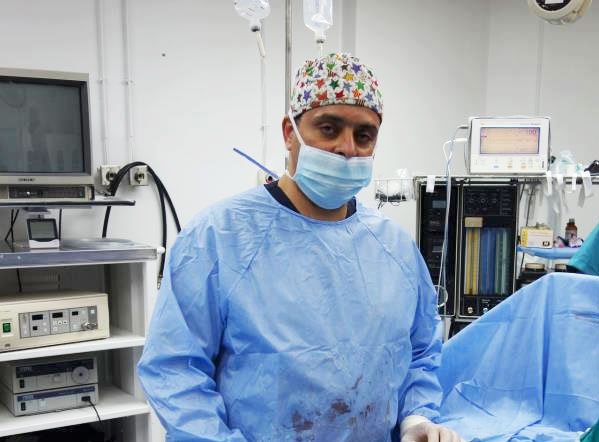Weight loss surgery results
Weight loss surgery weather it is a sleeve or bypass weight loss is considered a success if the patient losses 50% of his extra weight
For example if a lady weighing 110 kgs and needs to lose 50 kgs. Becoming 85 kgs is considered a success. This is really bad for 2 reasons:
- The patient is not informed with fact before surgery and they start to realize that two years later when the initilal weight loss phase ends and the patient starts to gain weight.
- All obesity surgery procedures will have some initial success followed by weight regain so if being 85 kgs is it then weight gain starts this is less than satisfactory.The results in the US out of 100 patients ( all 110 kgs with 50 kgs extra) only 50% will reach the weight of 85kgs with sleeve and only 67% will do so with standard gastric bypass. And the sad truth is all patients thought they will become 60 kgs for life if they have the surgery.

Why are results not good?
Stomach is a distensible organ so if it is very small in the initial procedure it tends to enlarge with time allowing the consumption of big food quantities and suboptimal weight loss then weight regain. So in sleeve gastercetomy the whole stomach dilates and with a standard gastric bypass both the stomach and intestine will dilate leading to weigh regain.
How can the surgery be modified to give better results that lasts much longer?
Many techniques were devised in the 90s to improve weight loss results of the standard gastric bypass.
One of them is to make the initial stomach size very small so that if it dilates it would still be small. This is called the micropouch technique (By Sapala-Wood) this improved the results to 80% success.
Another approach is to place a band around the stomach to prevent its dilatation on the long term to give better initial and long term weight loss. this improved the results to 86% success
Our technique that we used for 16 years now is combining both techniques so we perform a banded micropouch gastric bypass. The combination boasted the weight loss results from 67% success for the standard bypass to 91% success in our patients. Our criteria for success is reaching 100% excess weight loss so for the 110 kgs lady that needs to lose 50 kgs, becoming 60 kgs is our criteria for success rather than become 85 kgs as in the regular or standard bypass.
Why is the sleeve not good on the long term?
Sleeve gastrectomy is a very popular operation among surgeons because it is very easy to perform and patients are told that it is a simple operation with no need for vitamin intake and it is an effective operation?
Guess what you have not been told the whole truth. It is not a simple operation, 90% of the stomach is irreversibly removed so that it is the only irreversible obesity procedure. Weight loss is not great with 50% of patients losing 50% of the extra weight. Weight regain is very common few years later because of stomach dilatation. Sleeves induce esophageal reflux and a big percentage of patients will suffer from heart burn and reflux symptoms after surgery forever.
Sleeve alone was initially used to reduce some patient’s weight preparing them for a second stage with another better procedure and then the initial weight loss tempted many to use it alone and this will give an explosion of patients that are still obese despite having undergone the surgery.
What are the differences between the regular gastric bypass and the Modified gastric bypass?
The modified gastric bypass has 2 modifications to give better initial and long term weight loss than the regular gastric bypass.
It is performed with only 3 very small incisions for weights up to 120 kgs instead of the regular 5 incisions
Life time follow up for free to ensure the best education and results post surgery
Our target is good nutrition with good weight loss for healthier patients.
What is the difference between the mini gastric bypass and the regular gastric bypass?
Minigastric bypass is a regular gastric bypass performed with one intestinal connection instead of two connection. This technique is easier for surgeons to perform but it has 2 drawbacks. The stomach pouch is larger and prone to more dilatation in the future and more weight loss failure. The stomach is prone to a type of inflammation called the alkaline reflux and this is not present in the regular bypass.
What is the difference between the mini gastric bypass and the modified gastric bypass?
The modified gastric bypass gives far superior initial and long term weight loss, no risk of alkaline reflux.


